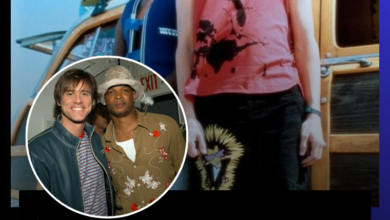Stallone’s ‘Oscar’ Was a Box Office Failure—But Siskel & Ebert Gave It Two Thumbs Up
OPINION: This article may contain commentary which reflects the author's opinion.
When you think of Sylvester Stallone, the first things that likely come to mind are his iconic roles in Rocky and Rambo, where he carved out a legendary career in the world of action. However, in 1991, Stallone took a surprising departure from his tough-guy image to star in a screwball comedy—Oscar, a film that would go on to become one of the more unusual entries in his filmography. Despite its poor reception at the time, Oscar garnered an unexpected seal of approval from two of the most influential film critics of the era, Gene Siskel and Roger Ebert.
The Plot and Critical Reception
Directed by John Landis, the mastermind behind such beloved comedies as Animal House and Coming to America, Oscar is set in 1930s New York City and centers around Angelo “Snaps” Provolone (Stallone), a mob boss who has promised his dying father that he will leave the world of organized crime. The film is a remake of the 1976 French film of the same name and features a cast of colorful characters, including Tim Curry, Marisa Tomei, and Don Ameche. As Snaps attempts to go straight and become a legitimate businessman, his life becomes increasingly complicated as he navigates family drama and tangled mob connections.
At the time of its release, Oscar was a critical and commercial flop, grossing only two-thirds of its $35 million budget. Critics found the humor forced, and Stallone’s attempt at comedy was seen as a misstep. Many attributed the film’s failure to Stallone’s casting, as his tough-guy persona didn’t seem to fit the role of a bumbling, comedic mob boss. Even director John Landis later admitted that he regretted casting Stallone, as Al Pacino, the original choice for Snaps, might have been a better fit for the role.
The Unexpected Approval of Siskel & Ebert
Despite its lackluster reception from most critics, Oscar found an unlikely champion in Siskel and Ebert. On their popular TV show At the Movies, the two legendary critics gave the film a rare and surprising “two thumbs up” rating, which is something not often seen when reviewing a high-profile flop. In their review, they acknowledged that the film’s first 20 minutes were weak, but they praised how it quickly turned itself around, making the rest of the movie much more enjoyable.
Ebert, in particular, expressed his admiration for how the film improved as it progressed. He said, “I was laughing and laughing, and then at the end of the movie, I sat there, and I said, ‘I don’t know how this movie did it, but … it turned itself around.’ It’s a good movie. It’s a funny movie. It really is.”
The Strength of the Supporting Cast
A major factor in Siskel and Ebert’s favorable review of Oscar was the standout performances of the supporting cast. While Stallone’s performance as Snaps was deemed “just okay” by Siskel, the critics were much more enthusiastic about the colorful characters surrounding him. The film’s quirky ensemble cast, including Marisa Tomei as Snaps’ spoiled daughter Lisa, Tim Curry as a speech therapist, and Harry Shearer and Martin Ferrero as bickering tailors, brought the film’s screwball humor to life.
Siskel noted, “It’s the supporting cast, all these crazies that are constantly walking in and out, that really recommend Oscar.” Tomei, in particular, stood out in one of her first major roles, showcasing her comedic talent before going on to win an Academy Award for My Cousin Vinny the following year. Curry, as the stuttering suitor to Lisa, was also singled out by the critics as the funniest character in the film, adding to the farcical charm of the movie.
A Legacy Reconsidered
Though Oscar didn’t achieve box office success or critical acclaim when it was first released, its reputation has softened over the years, and it is now seen by some as an underrated comedy. In fact, the film’s humor, while it didn’t land for audiences in the early ‘90s, has been rediscovered by newer generations of viewers who appreciate its quirky charm and stellar supporting performances.
Interestingly, Stallone himself has admitted in later years that he might have approached the role differently, expressing regret about not playing Snaps with a bit more seriousness. Despite his reservations about the project, Stallone acknowledged the value of the film, noting its lighthearted spirit and memorable moments.
While Oscar may never fully escape its status as a comedy flop in Stallone’s career, it remains a fascinating anomaly in his body of work. Siskel and Ebert’s enthusiastic review, which stood out in contrast to the consensus at the time, continues to be a testament to the unpredictable nature of film criticism and the occasional rediscovery of a film’s hidden gems. For fans of Oscar and Stallone’s comedic turn, it stands as a reminder that sometimes, even the most unexpected projects can have their moments of brilliance.



